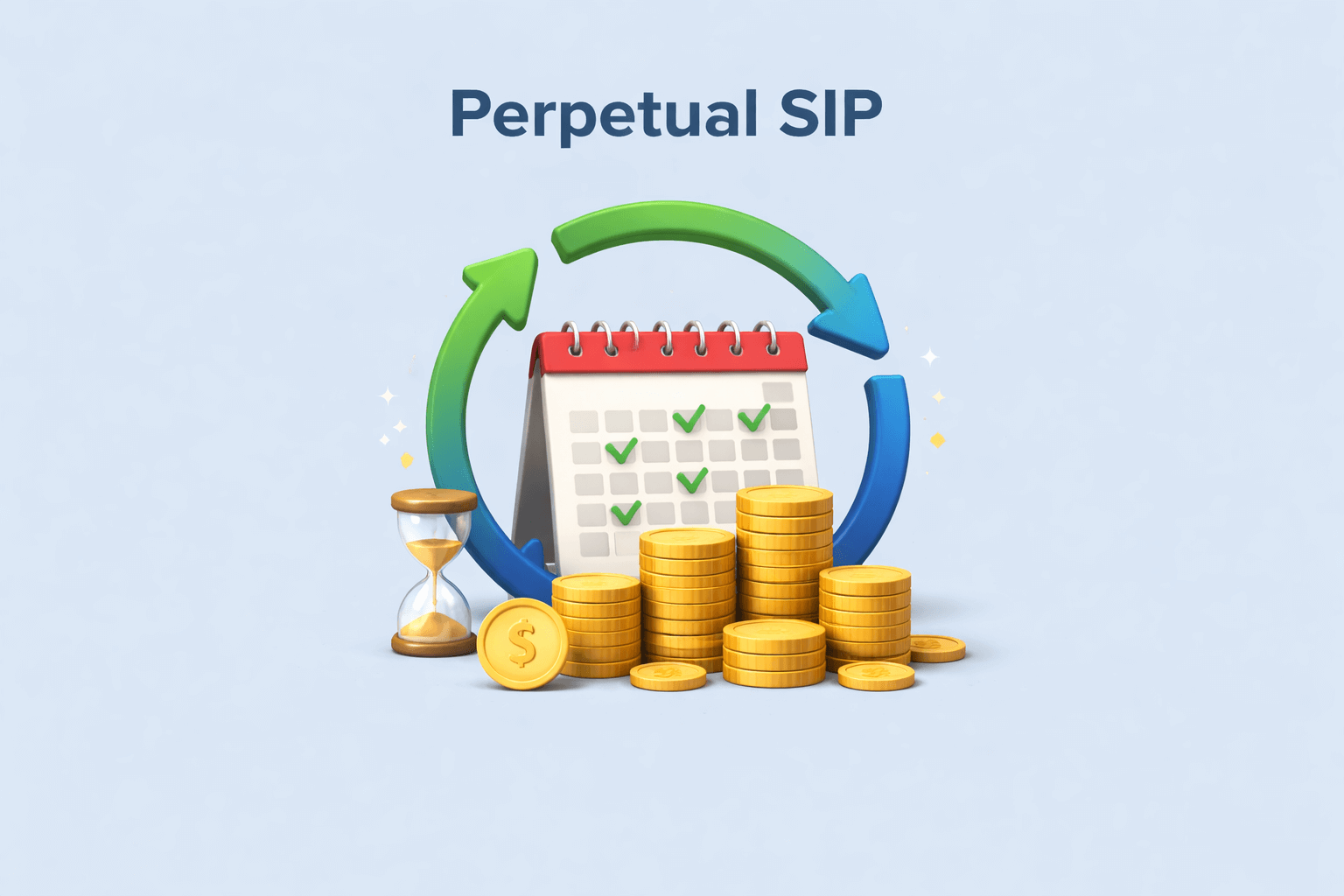Stock Options

- Published Date: November 26, 2025
- Updated Date: November 27, 2025
- By Team Choice
Stock options have become a popular tool among Indian traders who use the futures and options market for flexibility, hedging opportunities, or short-term trading strategies. This guide breaks down the stock options meaning, types, key features, and how to start investing in them.
What Are Stock Options?
Stock Options Meaning: In the Indian stock market, stock options are derivative contracts that give you the right, but not the obligation, to buy or sell a stock at a pre-decided price, called the strike price, on or before a certain date.
This makes stock options very different from shares. When comparing stock options vs stock, remember:
- Stocks = actual ownership in a company
- Stock options = a contract that derives its value from the stock’s price movement
In India, options are traded on NSE and BSE, but only in selected F&O-approved stocks.
Unlike index options such as NIFTY or BANK NIFTY, which are cash-settled, all single stock options in India are physically settled. This means that if you hold an In-The-Money (ITM) Call or Put option until expiry (the last Thursday of the month), you must take delivery of the entire lot of shares in case of a Call option, or deliver the entire lot in case of a Put option. This requires a very high capital outlay and can expose beginners to obligations they did not plan for.
Types of Stock Options in India
Here are the different types of stock options in India:
1. Call Options (CE):
A Call option gives the buyer the right to buy a stock at a fixed strike price on or before the expiry date. Traders buy Call options when they expect the stock’s price to rise. If the stock moves above the strike price, the Call option becomes more valuable. In India, Call options on individual stocks are physically settled if held till expiry.
2. Put Options (PE):
A Put option gives the buyer the right to sell a stock at a fixed strike price. Traders buy Put options when they expect the stock’s price to fall. If the stock moves below the strike price, the Put option gains value. Like Calls, stock Put options are also physically settled in India if they expire In-The-Money.
3. ITM, ATM, and OTM Options:
Stock options in India fall into three broad categories based on the relationship between the strike price and the current market price.
- In-the-Money (ITM) options have intrinsic value.
- At-the-money (ATM) options have strike prices close to the market price.
- Out-of-the-money (OTM) options have no intrinsic value and are cheaper but riskier.
These classifications help traders judge risk, premium cost, and profit potential.
4. European-Style Settlement:
Most stock options in India follow a European-style exercise, which means they can be exercised only on the expiry date and not before. This is different from American-style options seen in some global markets. Even though they are European-style, they are still physically settled if they expire In-The-Money.
Features of Stock Options
Stock options in India come with several unique characteristics that make them powerful yet risky trading tools. Here are the key features every beginner should know:
1. Leverage: Options let traders control large positions by paying only a premium instead of the full stock price. This boosts return potential but also makes gains and losses happen much faster.
2. Limited Risk for Buyers: Option buyers can lose only the premium paid. This makes buying safer than many other trading methods, though premiums can drop quickly due to market movement or time decay.
3. High Risk for Sellers: Option sellers face unlimited loss potential if the market moves sharply against them. Brokers require high margins to cushion this risk when selling. Beginners should avoid selling due to high capital needs and extreme risk.
4. No Ownership Rights: Buying an option does not make you a shareholder. You do not receive dividends or voting rights since the option is only a price-based contract, not actual ownership in the company.
5. Fixed Expiry: Stock options expire on the last Thursday of every month, shifting to the previous trading day if there's a holiday. As expiry nears, time decay reduces the option’s value.
6. Physical Settlement: All single stock options in India are physically settled. ITM positions held till expiry require taking or giving delivery of the full lot of shares, which demands large capital. Traders usually exit before expiry to avoid this obligation.
7. SEBI-Regulated: Stock options follow strict SEBI rules regarding expiry, margins, settlement, and contract specifications. This ensures standardisation, transparency, and fair practices in the derivatives market.
How to Invest in Stock Options in India
Investing in stock options in India is straightforward once you understand the process. Here’s a step-by-step guide for beginners:
1. Open a Trading and Demat Account:
To start trading stock options, you need a Trading and Demat account with the F&O segment activated. Brokers may request income proof, such as bank statements, salary slips, or ITR. Consider opening a Demat account with a SEBI-registered broker, such as Choice.
2. Understand the Basics of Options:
Before investing, make sure you clearly understand what Call options and Put options are, how strike prices and premiums work, and why Option Greeks like Delta, Theta, and Vega matter. Also, learn about margins, physical settlement in stock options, and the risks involved. Beginners should focus on buying options rather than selling them.
3. Choose a Stock from the F&O List:
Option trading is available only for selected stocks on the NSE F&O list. Pick a stock based on your market view. If you expect the price to rise, you may consider buying a Call option. If you expect it to fall, you may consider purchasing a Put option.
4. Select the Strike Price and Expiry:
Choose a strike price based on your risk appetite. ITM strikes cost more but have a higher probability. ATM strikes are balanced, while OTM strikes are cheaper but riskier. Also, choose the expiry. Stock options in India expire on the last Thursday of the month, and physical settlement applies, so plan your trades accordingly.
Note: Always prefer options contracts that have high Open Interest (OI) and high trading volume. Trading in liquid options (usually ATM and near-month OTM options) allows you to enter and exit the trade quickly without significant price discrepancies, which is crucial for risk management.
5. Place the Option Trade:
Open the options chain in your trading platform, select the strike price and contract you want to trade, and place a Buy Call (CE) or Buy Put (PE) order. You can choose between market or limit orders depending on your preference.
6. Monitor Your Trade:
Option premiums change constantly due to price movement, volatility, and time decay. Track your position regularly and manage your risk. Many beginners prefer to exit once they achieve a reasonable profit or when the premium starts to fall.
7. Exit Before Expiry:
Always close your stock option positions before expiry unless you are prepared for physical settlement. Holding an In-The-Money stock option till the last Thursday can force you to take or give delivery of the full lot of shares, which requires significant capital.
8. Review and Learn:
After each trade, review what worked and what didn’t. Note your mistakes, understand why the option moved the way it did, and refine your strategy. Options trading requires practice, discipline, and continuous learning.
Conclusion
Stock options in India offer strategic flexibility for hedging, speculation, and portfolio protection. Understanding the stock options meaning, their types, and key features helps you take informed steps toward options trading. While options provide leverage, they also require disciplined risk management. Beginners should start small, learn the basics, and gradually build confidence.
If used wisely, stock options can complement long-term stock investing and enhance your overall market strategy.
Disclaimer: Stock options carry significant risk, and traders should do their own research or consult a qualified financial advisor before making any investment decisions. The Indian derivatives market involves physical settlement and other risks that beginners must understand before trading.
Recommended for you

Perpetual SIP: Meaning, Features & Benefits

FII DII Data - Live Data

Share Market Prediction For Tomorrow
